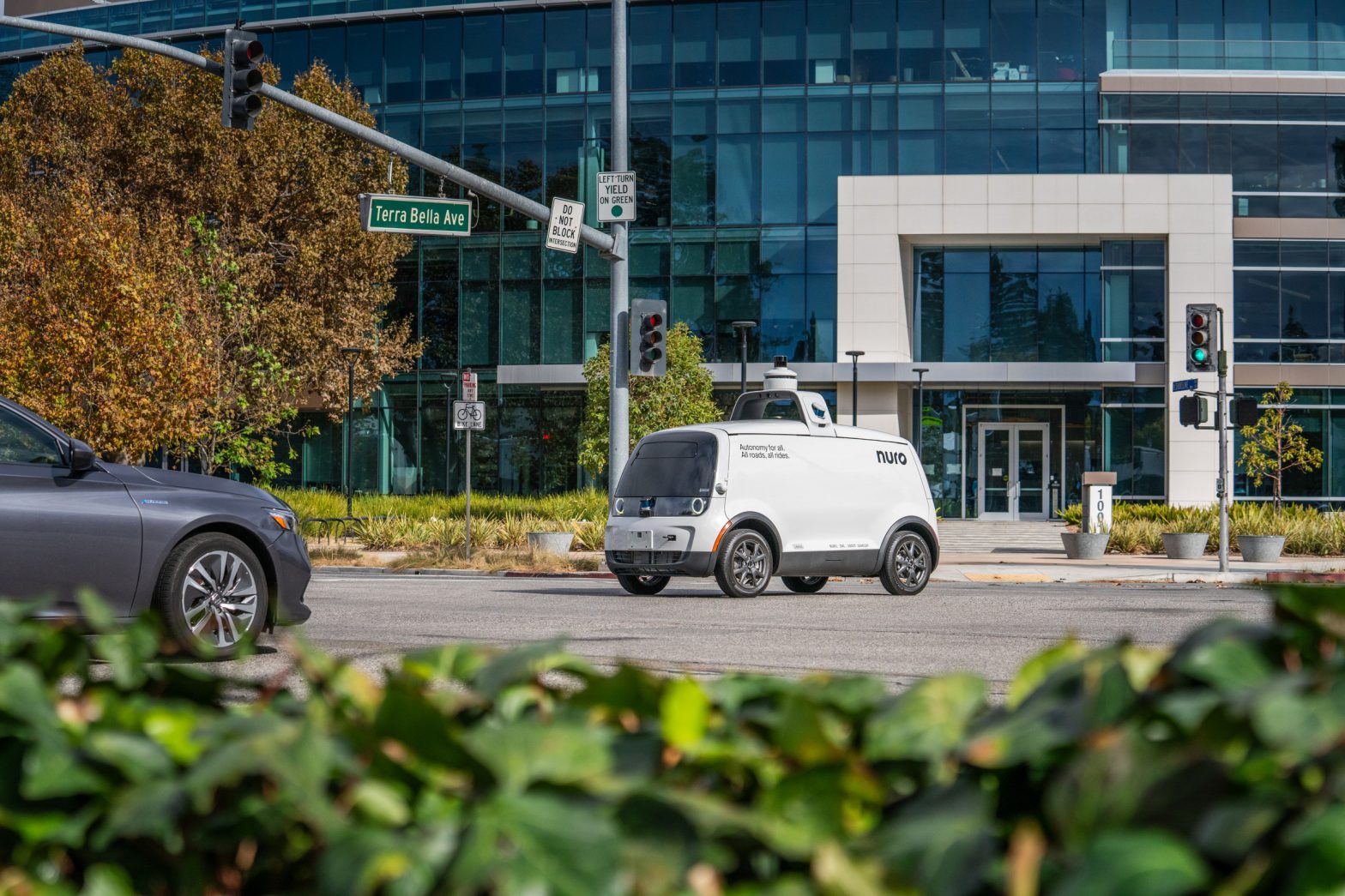/
The company says it will test its ‘zero-occupant’ vehicles in a larger geographic area and take on new driving maneuvers.
Share this story
:format(webp)/cdn.vox-cdn.com/uploads/chorus_asset/file/25738045/Nuro_L4_expansion.png)
In the wake of pivoting its business strategy to include robotaxis and driver assist, Nuro is taking its fully autonomous vehicles to new geographic areas.
The California-based company, which currently operates a small fleet of driverless vehicles in California and Texas, said it would grow its operational design domain and expand the deployment of its zero-occupant, Level 4 vehicles.
In Mountain View and Palo Alto, Nuro says it will see an 83 percent increase in the deployment area, while Houston will see a 70 percent increase. Its vehicles will also take on new, more complex driving environments, such as multi-lane roads at speeds of up to 35mph, driving around emergency vehicles, buses, and construction sites, and driving at night.
With these changes, Nuro says its vehicles can now handle more everyday driving conditions, which hopefully helps make the case to third parties that its technology is ready for mass scale.
For its testing, Nuro will be using a “modest” number of purpose-built, third-generation R3 vehicles, in addition to its fleet of Toyota Priuses retrofitted with autonomous hardware. The company was forced to put its commercial expansion on pause and delay production of its R3 vehicle last year as it dealt with rising costs.
Nuro was founded in 2016 by Dave Ferguson and Jiajun Zhu, two veterans of the Google self-driving car project that would go on to become Waymo. Nuro’s current fleet of vehicles, which operates in California and Texas, has traveled over 1 million miles autonomously without any major safety incidents.
Last month, Nuro made the risky decision to pivot from a robot delivery operation to a business that licenses its technology to automakers and mobility operators, like ride-hailing and delivery.
Building and deploying autonomous vehicles is extremely expensive, and even the most sophisticated players are losing money hand-over-fist. Unlike many of its competitors, Nuro doesn’t have a wealthy parent company willing to absorb those losses in the hopes of future windfalls. And Nuro has made its own stumbles: the company went through a massive restructuring several years ago, shedding approximately 30 percent of its workforce.
